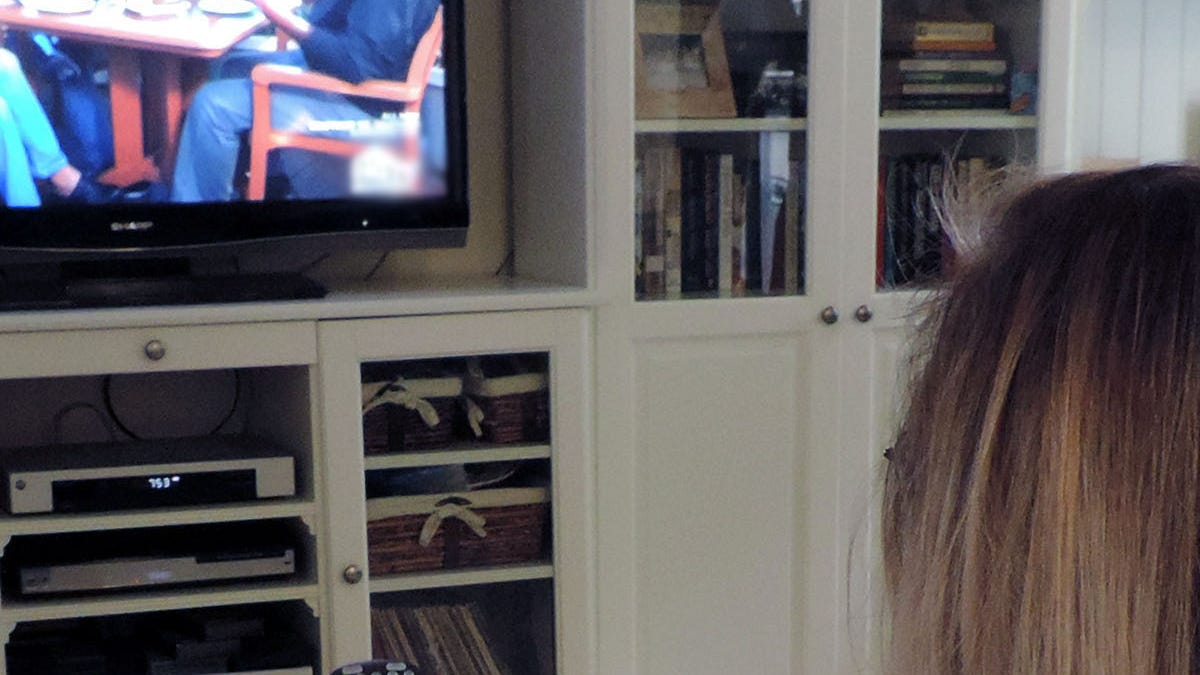Science worries binge-watching could be killing you
New research links excessive TV watching and killer blood clots. That could be especially bad news for those who like to watch entire seasons of their favorite shows at a time.

The clicker may be killing us.
Scientists in Japan studied tens of thousands of television watchers over the course of two decades and now say watching lots of TV on a daily basis could increase the risk of dying from a blood clot in the lung. That's especially bad news for today's growing generation of binge watchers.
Between 1988 and 1990, researchers asked over 80,000 people in Japan between the ages of 40 and 79 how much TV they watched each day. They then tracked how many people died of a pulmonary embolism -- a blood clot in the lung -- over the next 19 years and looked at how many hours of TV those participants watched.
A total of 59 participants died of a pulmonary embolism and the researchers discovered that such deaths increased by 70 percent among people who watched TV between 2.5 and 4.9 hours a day compared with those who watched less than 2.5 hours each day. The risk increased by 40 percent for each additional 2 hours and went up by 2.5 times among those who watched TV 5 or more hours a day.
In short, the odds that a blood clot from your leg or somewhere else breaks free and then gets re-stuck in your lungs one day seem to go up the more TV you watch each day.
The really bad news is that the data from the study was done among a cohort and during an era in which "binge watching" via online streaming services was not really yet a thing like it is now for a growing population of bingers.
Osaka University Graduate School of Medicine's Dr. Toru Shirakawa, an author of the study published in the current issue of the journal Circulation, says the findings should be of particular interest to Americans, who watch more television than Japanese adults, according to other research.
"Nowadays, with online video streaming, the term 'binge watching' to describe viewing multiple episodes of television programs in one sitting has become popular," Shirakawa said in a news release. "This popularity may reflect a rapidly growing habit."
The study data was recorded before computers, tablets and smartphones became popular enablers of our new binging habits. A different study conducted in Spain also found a link between increased mortality rate and watching TV, but interestingly it didn't find mortality risk went up with increased use of computers.
Clearly, research into the health impacts of binge-watching needs to be done and the authors of the new study out this week concur that new studies are needed to determine health risks from the ways we use all the new screens in our lives.
So what can you do if you have a binge-watching habit, but you're disturbed by the idea of both a blood clot in your lung and of reducing your treasured binge sessions? (After all, there is so much more great stuff to watch now than back in 1988, right?)
"After an hour or so, stand up, stretch, walk around, or while you're watching TV, tense and relax your leg muscles for 5 minutes," said study co-author Dr. Hiroyasu Iso.
Yes, of course: More exercise is the answer, right? Well, maybe. Just don't jump into eight hours of Crossfit to cancel out watching the last season of "House of Cards" in one sitting. As we reported last year, a 2015 study found that too much exercise can poison your blood.
Seems like we are all doomed. Might as well catch up on some post-apocalyptic sci-fi. Just be sure to make a semi-vigorous trip to the kitchen or the mailbox between episodes.

